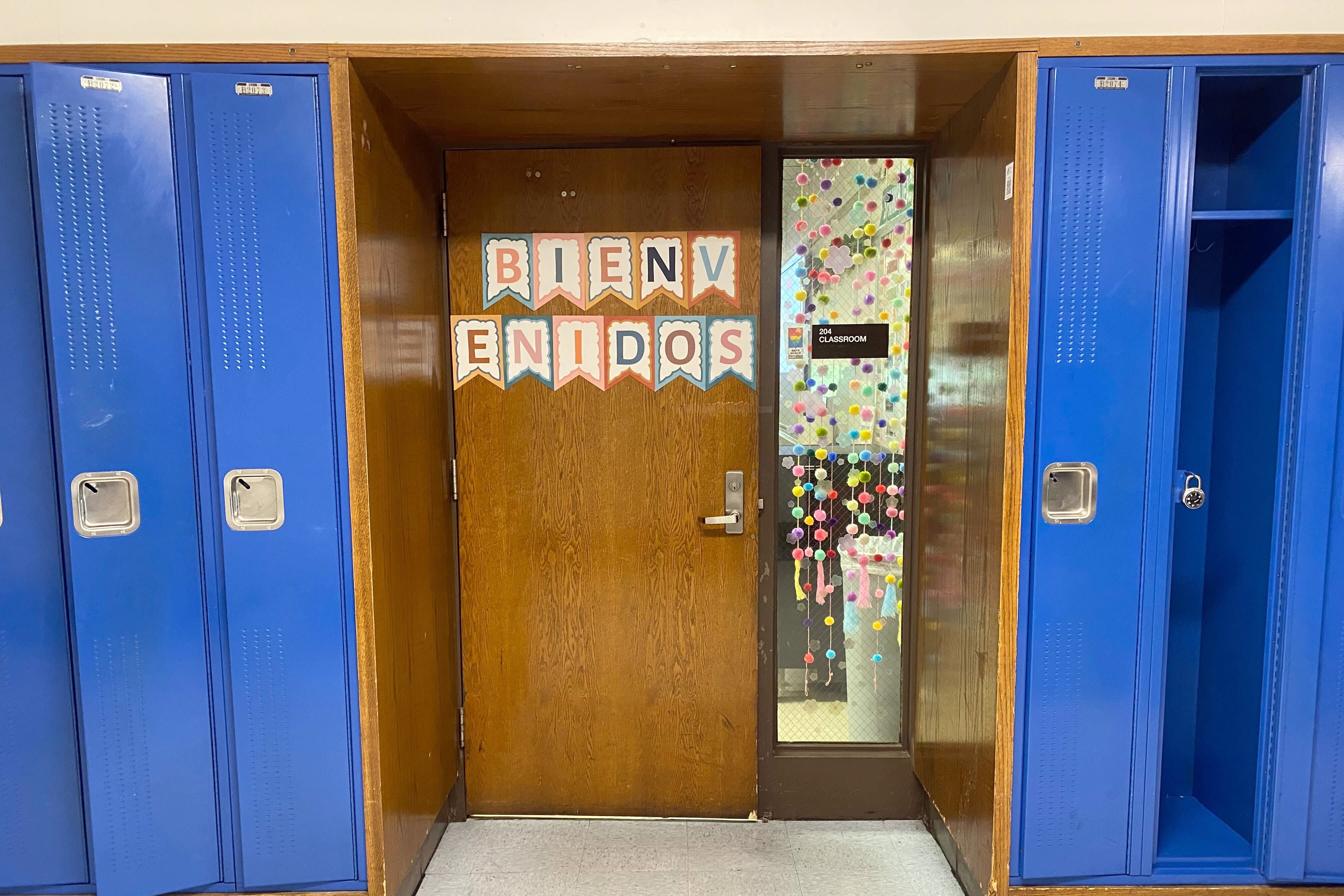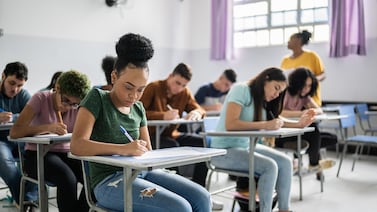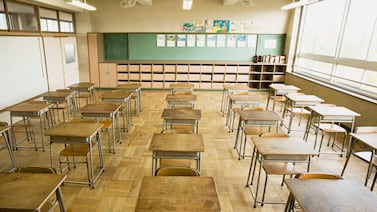Sign up for Chalkbeat Chicago’s free daily newsletter to keep up with the city’s public school system and statewide education policy.
Chicago teachers are urging state education officials to help the city’s public schools with an influx of migrant students, many of whom lack basic needs such as clothing, medical care, and housing.
Teachers told board members on Wednesday during the state board’s monthly meeting that Chicago schools are struggling to meet the needs of newly arrived school-age migrants. Some teachers said classrooms have become overcrowded, schools don’t have enough bilingual educators, and many students need access to bilingual social workers or school counselors for social-emotional support.
Diane Castro, a bilingual preschool teacher at Lorca Elementary School, said the 3- and 4-year-old students she works with have endured so much and need more than her school can provide.
“Our students are … doubled and tripled up in apartment buildings,” said Castro. “The children are in clothes that are too small and shoes that are too big. Our children have not had proper medical or dental care.”
More than 18,500 migrants have come to Chicago since August 2022, according to city officials, though it’s not clear exactly how many are school-aged. Chicago Public Schools officials have pointed to climbing numbers of students identified as English learners and those living in temporary living situations as an estimate for how many newcomers are now in CPS.
The teachers’ push for help comes as city and state officials are calling on the federal government to come through with additional funding and support.
During the spring legislative session, state lawmakers filed a bill to help support migrant students by requiring the state board to create New Arrival Student Grants for schools. But the bill didn’t move past the rules committee.
In late September, Gov. J. B. Pritzker announced $41.5 million for Illinois cities seeing an influx of newcomers. Chicago got more than $30 million of that money. But in early October, Pritzker made a plea to President Joe Biden for support, calling the pace of new arrivals “untenable” for Chicago and Illinois.
A Chalkbeat Chicago analysis of staffing data over the summer found a decline in the number of designated bilingual teachers in recent years, but an uptick in teachers with bilingual or English as a Second Language endorsements. The analysis also found that the ratio of staff with bilingual credentials or titles to students was increasing as more English learners have enrolled.
Syvelia Pittman, a teacher at Nash Elementary School on the city’s West Side, has seen that play out on the ground. She told the state board Wednesday that her school serves about 50 newcomers, increasing the school’s enrollment in preschool to third grade. However, the school does not have any bilingual educators and teachers often use Google translate to speak to students.
Pittman asked the state board to provide schools with additional funding to hire more teachers and provide current teachers with support to obtain a certificate in bilingual education.
In addition to the increased need for bilingual educators, teachers said students are coming to schools without their basic needs being met.
Gabriel Paez, a bilingual educator at Cameron Elementary School in the West Humboldt Park Neighborhood and Bilingual Education Committee chair for the Chicago Teachers Union, said some students lack shoes and clothes and need access to vaccination to attend school. With Chicago’s harsh winter around the corner, students will need warmer clothes, winter coats, and housing.
“We have 20 newcomers in each grade level who arrive daily and in worsening conditions. Many of my students arrive stripped of their basic needs,” said Paez. “Medication, clothes, shoes, socks, medical attention, housing, and mental health, are all falling on already overburdened and understaffed schools.”
Paez urged the state board to provide winter supplies, emergency housing assistance, and first aid kits along with bilingual social workers and counselors.
Paez also asked the board to give students who are migrants an exception from the state’s English-only exams such as the Illinois Assessment of Readiness because it would be “damaging and retraumatizing” to students who do not understand the language.
Chicago Public Schools’ enrollment increased by 1,000 students for the first time in more than a decade this year. District data shows more than 7,800 additional students were classified as English learners this year compared to last year. Normally, the annual increase is by an average of 3,000 English learners.
The number of students identified as living in temporary housing also increased compared to last year. Migrant students are considered Students in Temporary Living Situations, or STLS, and guaranteed admission to local public schools despite not having a permanent address.
On the 20th day of the school year, when the district took its official enrollment count, a spokesperson cautioned against attributing the bump to “any one group of students.” Earlier in July, a top mayoral aide suggested to the Chicago Sun-Times that newcomer students would reverse CPS enrollment declines.
The Illinois State Board of Education will make a budget recommendation to Pritzker before his State of the State and budget address which typically happens in February.
Reema Amin contributed to this report.
Becky Vevea is the bureau chief for Chalkbeat Chicago. Contact Becky at bvevea@chalkbeat.org.
Samantha Smylie is the state education reporter for Chalkbeat Chicago, covering school districts across the state, legislation, special education, and the state board of education. Contact Samantha at ssmylie@chalkbeat.org.







